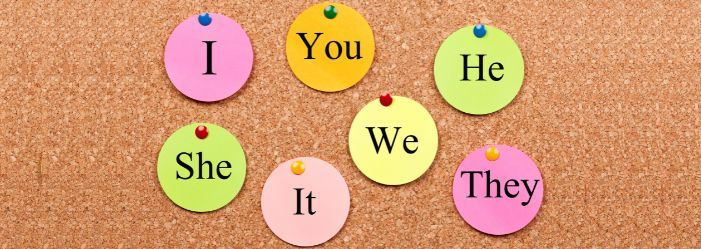With International LGBT Pride Day on 28 June, our awesome recruitment consultant, Jareth Richardson, penned this post…

So what exactly are Pronouns?
When talking about pronouns, we mean personal pronouns used in reference to an individual and are often but not always gender-specific. We use these pronouns when referring to someone without using their name.
Where do Pronouns come into play in Recruitment?
- Job descriptions, position titles, and company profiles
- Interviews and conversations
- Email signatures
Why is Pronoun use important?
This signals to all clients (even ones that don’t identify as a part of one of these communities) that you have an inclusive hiring process and that diversity is not just a 'goal' or checkbox in a mission statement but a practice that you incorporate into every aspect of recruitment.
Inclusive language creates a more welcomed environment for candidates to enter the recruitment process, leading to more applications and greater diversity. Those who may have been wary of applying will be more likely to do so if they see this inclusion in your sign-off language and job descriptions.
Removing gendered pronouns from your job descriptions helps prevent bias from entering the interview process before you speak to a candidate or look at a resume.
How can you incorporate Pronouns successfully?
→ JUST ASK: “What are your correct pronouns?” It’s always better to ask than to assume. You create an inclusive and respectful environment by using pronouns as a norm in your hiring process and workplace.
→ NEUTRALISE YOUR JOB DESCRIPTION: Remove gendered language from your job ads and use the pronoun “they” when describing a role’s requirements. If the role can be done by someone regardless of their gender identity, then the job description should naturally reflect that.
→ HOT TIP: Gender-coded language is different from pronoun use. In one case, fewer than 2% of applicants were women for a job that used “coded” language like “ninja”, “rockstar”, or “hacker”, which are perceived as traditionally male. Balancing those terms with other keywords will attract a wider pool.
→ Using gender-neutral and gender-diverse pronouns is an uncomplicated way to be more inclusive in your hiring process. It encourages candidates who may have felt the need to hide their identity, to be their authentic selves instead.
Where are Pronouns used?
Pronouns can be used In any situation where you interact with an individual. This signifies how the individual presents to the outside world and can be found on an individual's LinkedIn profile, email signature and resume. If you aren’t sure, you can simply ask!
Other useful terminology for inclusivity*:
→ SEX refers to a person's biological status and is typically assigned at birth, usually based on external anatomy. Sex is generally categorised as male, female or intersex.
→ GENDER is often defined as a social construct of norms, behaviours and roles that varies between societies and over time. Gender is often categorised as male, female or nonbinary.
→ GENDER IDENTITY is one's own internal sense of self and gender, whether that is man, woman, neither or both. Unlike gender expression, gender identity is not outwardly visible to others.
For most people, gender identity aligns with the sex assigned at birth, the American Psychological Association notes. For transgender people, gender identity varies from the sex assigned at birth.
→ GENDER EXPRESSION is how a person presents gender outwardly, through behaviour, clothing, voice or other perceived characteristics. Society identifies these cues as masculine or feminine, although what is considered masculine or feminine changes over time and varies by culture.
If you would like to have a conversation on diversity and inclusion or would like a better understanding of pronouns within your business, please reach out to me at Morgan Consulting via:
✉️ jrichardson@morganconsulting.com.au
For more insights, news, career opportunities and job vacancies, follow us on LinkedIn.
* Reference: A Guide To Gender Identity Terms - nrg.com
Categories




